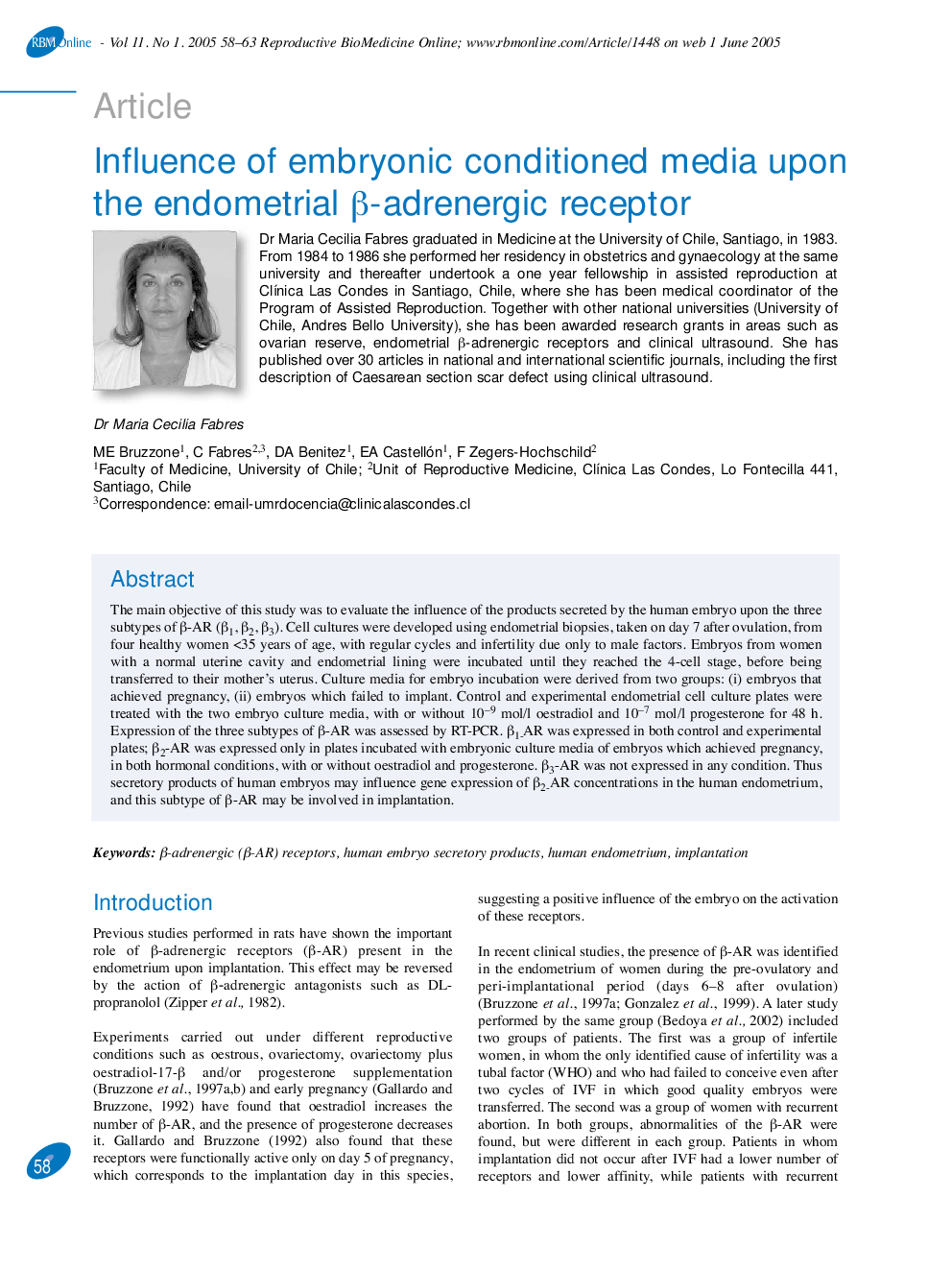| Article ID | Journal | Published Year | Pages | File Type |
|---|---|---|---|---|
| 9335292 | Reproductive BioMedicine Online | 2005 | 6 Pages |
Abstract
The main objective of this study was to evaluate the influence of the products secreted by the human embryo upon the three subtypes of β-AR (β1, β2, β3). Cell cultures were developed using endometrial biopsies, taken on day 7 after ovulation, from four healthy women <35 years of age, with regular cycles and infertility due only to male factors. Embryos from women with a normal uterine cavity and endometrial lining were incubated until they reached the 4-cell stage, before being transferred to their mother's uterus. Culture media for embryo incubation were derived from two groups: (i) embryos that achieved pregnancy, (ii) embryos which failed to implant. Control and experimental endometrial cell culture plates were treated with the two embryo culture media, with or without 10â9 mol/l oestradiol and 10â7 mol/l progesterone for 48 h. Expression of the three subtypes of β-AR was assessed by RT-PCR. β1-AR was expressed in both control and experimental plates; β2-AR was expressed only in plates incubated with embryonic culture media of embryos which achieved pregnancy, in both hormonal conditions, with or without oestradiol and progesterone. β3-AR was not expressed in any condition. Thus secretory products of human embryos may influence gene expression of β2-AR concentrations in the human endometrium, and this subtype of β-AR may be involved in implantation.
Keywords
Related Topics
Health Sciences
Medicine and Dentistry
Obstetrics, Gynecology and Women's Health
Authors
ME Bruzzone, C Fabres, DA Benitez, EA Castellón, F Zegers-Hochschild,
